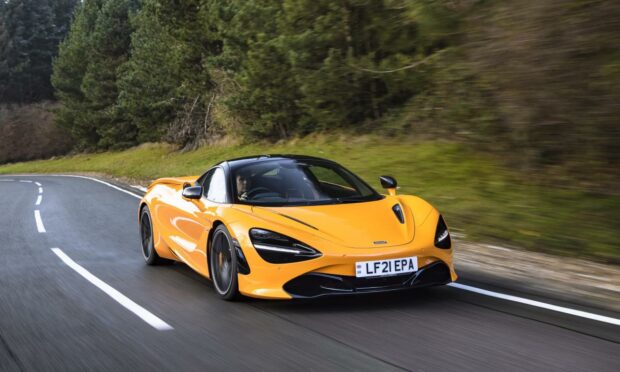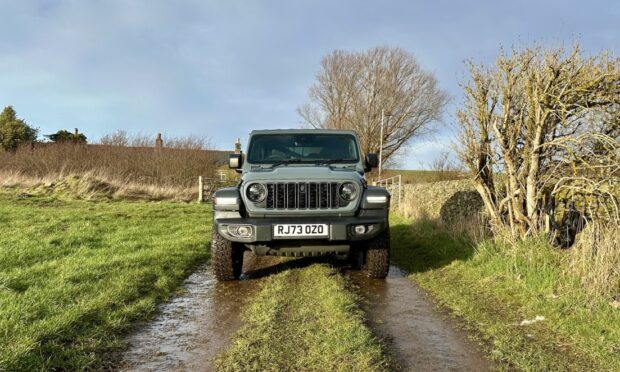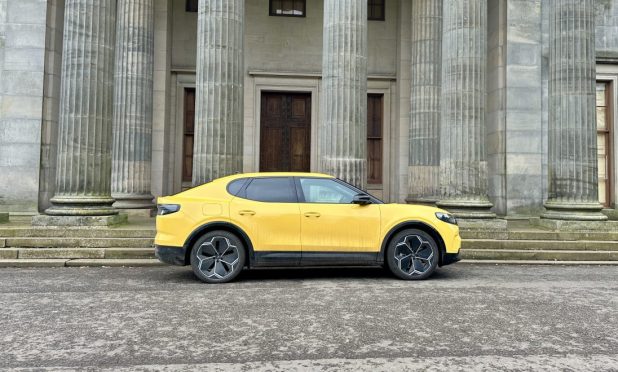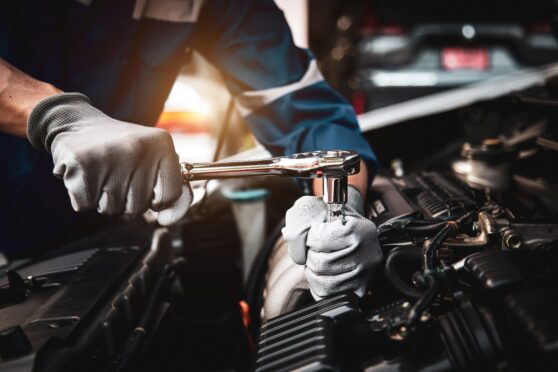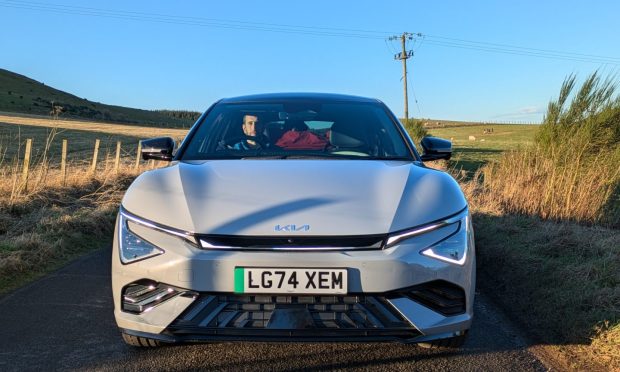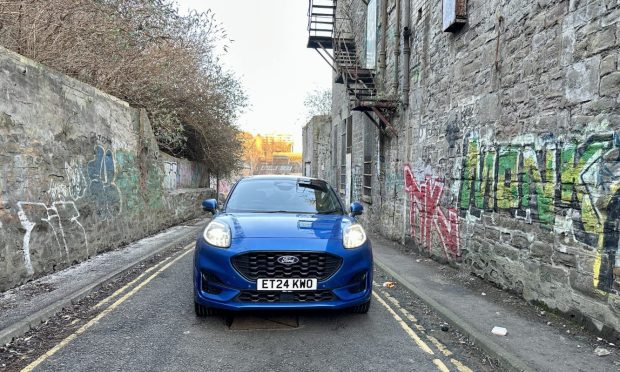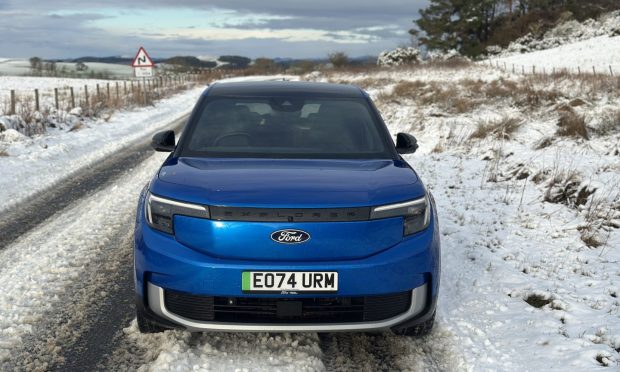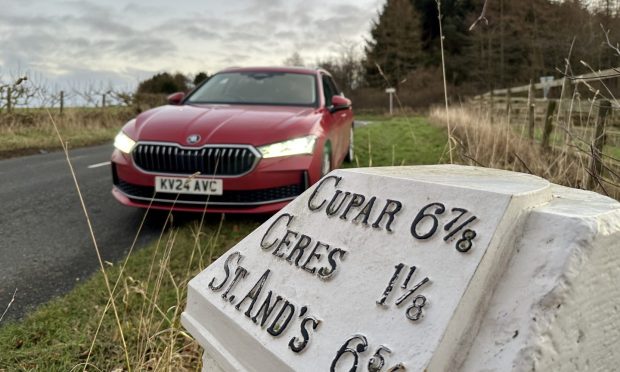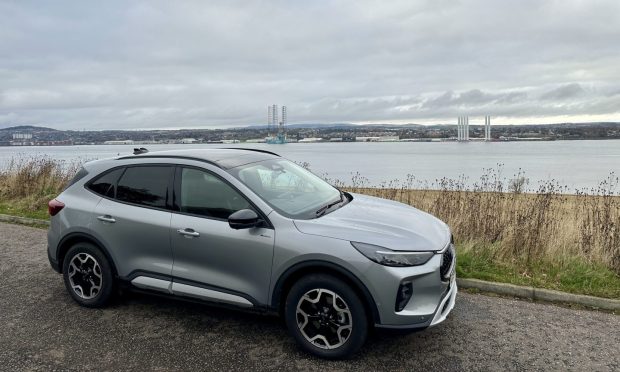Even as someone who has been a motoring journalist for the better part of two decades, driving a supercar remains a thrill – especially when it’s a McLaren.
The iconic British supercar maker invited me to Millbrook Proving Ground in Bedfordshire. This private facility contains a speed bowl, a one mile straight, an ‘Alpine’ hill circuit and more. It’s used by manufacturers to develop new products and has featured in Top Gear, The Grand Tour and in several blockbuster movies.
I spent some time in the new McLaren GT before moving on to the car tested here – the McLaren 720s Spider. This high-powered drop top sits above the GT in McLaren’s range. Prices start at a not inconsiderable £245,000, and most buyers spend around £50,000 – £70,000 on optional extras to get exactly the car they want.
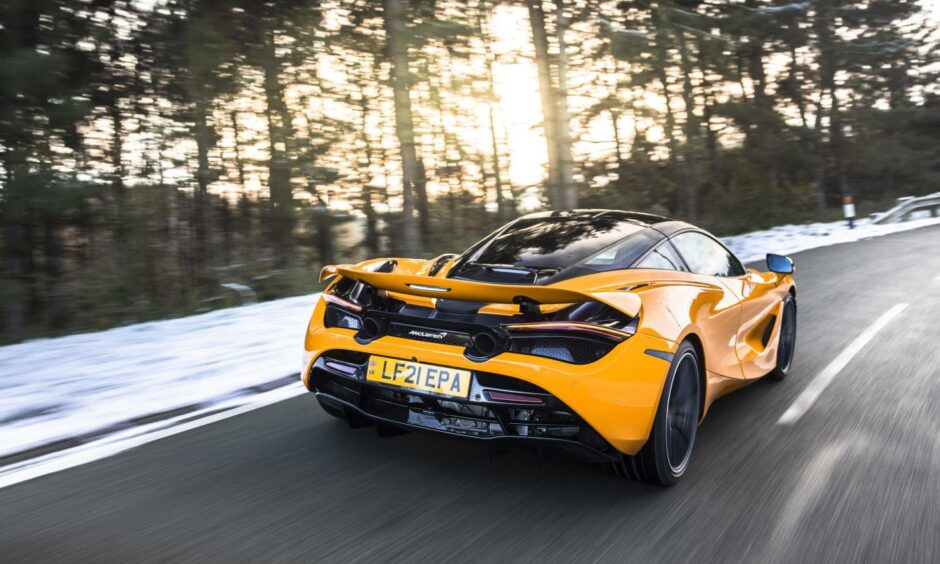
Among the extras my car was loaded up with were a £4,900 sports exhaust, £5,990 for an exterior carbon fibre pack, and £1,980 for carbon fibre gear shift paddles.
It is, frankly, a beautiful car. The convertible weighs just 49kg more than its coupe counterpart. The roof opens electrically in just 11 seconds and you can drive with the top down at speeds of more than 200mph. The 4.0 litre twin-turbo V8 engine is located in the middle of the car, for perfect weight distribution, and produces a whopping 720hp.
Take to the track
I hop behind the wheel and Ross, one of McLaren’s professional drivers, takes the passenger seat. His job will be to keep me and the car safe for the next hour.
We hit the speed bowl. This five lane banked oval will be familiar to fans of Nascar racing and the 80s Tom Cruise vehicle Days of Thunder. At Millbrook speeds in excess of 150mph are allowed. Above 120mph you’re required to wear a crash helmet, however, so McLaren have capped our speeds at this limit.
It’s enough. More than enough. I’m in the fourth lane – the second steepest one. Already the McLaren 720S is banked at quite an angle, its speed pinning it in place. We hurtle round the track for several loops, flashing past slower moving cars in the lanes below.

The needle hovers bang on the 120mph mark. It’s a rush, but for someone not used to that speed it’s also a lot of fierce concentration. I breathe a sigh of relief when my instructor tells me to ease off and head for the exit lane. It’s only then I realise how tightly I’ve been gripping the wheel.
One mile straight
From here we head over to the mile straight. The plan is to go from standstill to 120mph and back to zero again. Ross warns me to press the accelerator gradually or the rear end will slide out.
We rocket off the mark – 720hp thrusting us forward. Even in second and third gears there is wheelspin and the back of the car wriggles as it fights to put all that power onto the tarmac. Eventually things smooth out and we hurtle forward for a few more seconds until the speedo reads 120.

I slam on the brakes. If anything the deceleration is even more savage and giddying than the acceleration. The McLaren 720S has a clever airbrake that deploys at the rear, spreading downforce across the car and preventing the nose from dipping forward under heavy braking.
It works superbly and before I know what’s happening we’re at a standstill. We do it once more just for good measure.
Tackling the hill course
From there it’s on to the hill course – a sweeping series of bends and straights designed to mimic an Alpine road.
It’s pretty famous. We come round the bend where Daniel Craig’s James Bond rolls his Aston Martin DBS off the road and into the woods in Casino Royale. Thankfully I manage to avoid flipping the McLaren 720S, though I do stab the accelerator too sharply, causing the rear end of the car to fishtail and making even the unflappable Ross flinch a little.
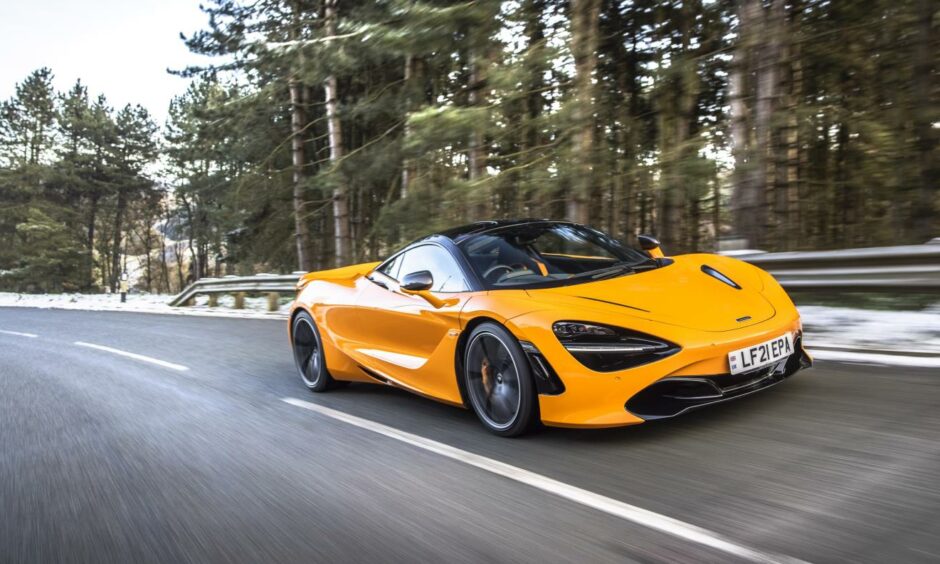
The car’s handling limits lie well beyond my driving talents. But that’s the beguiling thing about supercars. And the remarkable thing about the McLaren 720S is how easy to drive it is when you’re not pushing the performance envelope.
It really is one of the world’s best supercars.
Facts:
Price: £245,700
0-62mph: 2.9 seconds
Top speed: 212mph
Economy: 23.2mpg
CO2 emissions: 276g/km
